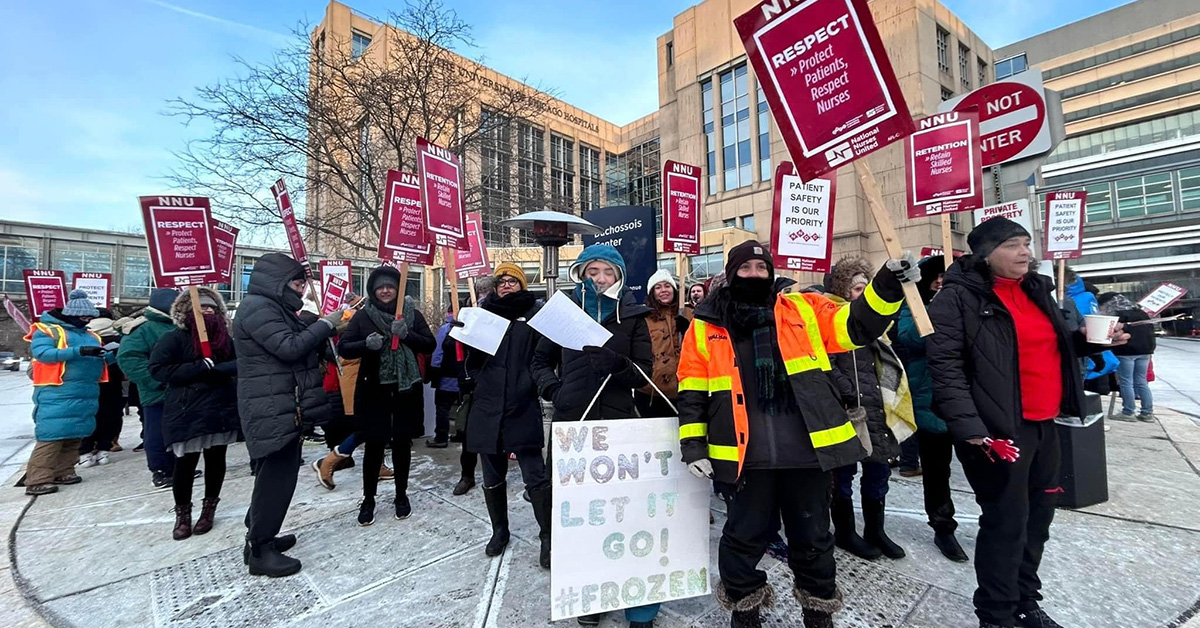UChicago nurses rally for safe staffing

By Rachel Berger
National Nurse magazine - Jan | Feb | March 2024 Issue
Registered nurses at UChicago Medicine in February authorized a strike after holding an informational picket and rally to demand the university address their patient safety concerns and settle their contract in a timely manner. National Nurses Organizing Committee represents 2,800 nurses at UChicago Medicine.
“We’ve been at the bargaining table for three months. Unfortunately, it seems the administration refuses to take our patient safety concerns seriously,” said Elaine Mister, RN in the case management department. “We remember the administration’s stalling during our 2019 contract negotiations, and those tactics ultimately forced us to strike. If the university doesn’t address our patient safety concerns, a strike is not off the table.”
Nurses are calling on the university to respect their need for appropriate staffing, training, and resources, as well as demanding management respond to workplace violence prevention proposals, all to provide the highest quality of patient care in a safe environment for patients, visitors, and staff.
“Pretty much every shift in the emergency room, I see a lot of emotions from patients waiting six to eight hours to get in a room to be seen,” said Jason Smith, RN in the adult emergency department. “I understand their frustration, but I also want to take care of my patients and make it home safely after each shift. That’s why we need management to get serious about safe staffing and workplace violence prevention plans, which are the best ways to prevent and deal with these escalations.”
“As nurses we are committed to providing every patient — and that means every patient — with the highest quality care,” said Lea Sargent King, RN at Mitchell Hospital. “That’s why it’s disturbing to see the university’s failure to make a serious effort to address the staffing crisis at Mitchell Hospital, which treats a large percentage of vulnerable Medicaid patients. This deliberate understaffing is a form of systemic discrimination that does the deepest harm to those with the fewest resources.”
“When nurses are not given the resources to provide the highest quality of care, they suffer moral injury and distress, which leads them to leave our hospital,” said Allison Messer, RN in the neonatal intensive care unit. “The staffing crisis in our units has driven away more than 40 percent of our core staff since the start of the pandemic.”
“We are in a staffing crisis for our sexual assault nurse examiners (SANE) program, and it is about to get worse,” said Brandi McNally, RN in the adult emergency department. “We have a responsibility at this institution to grow and develop our program to serve our patients with staff jobs. Our SANE staffing crisis feels a whole lot like an unsolvable challenge right now, but it doesn’t have to be.”
Rachel Berger is a communications specialist at National Nurses United.